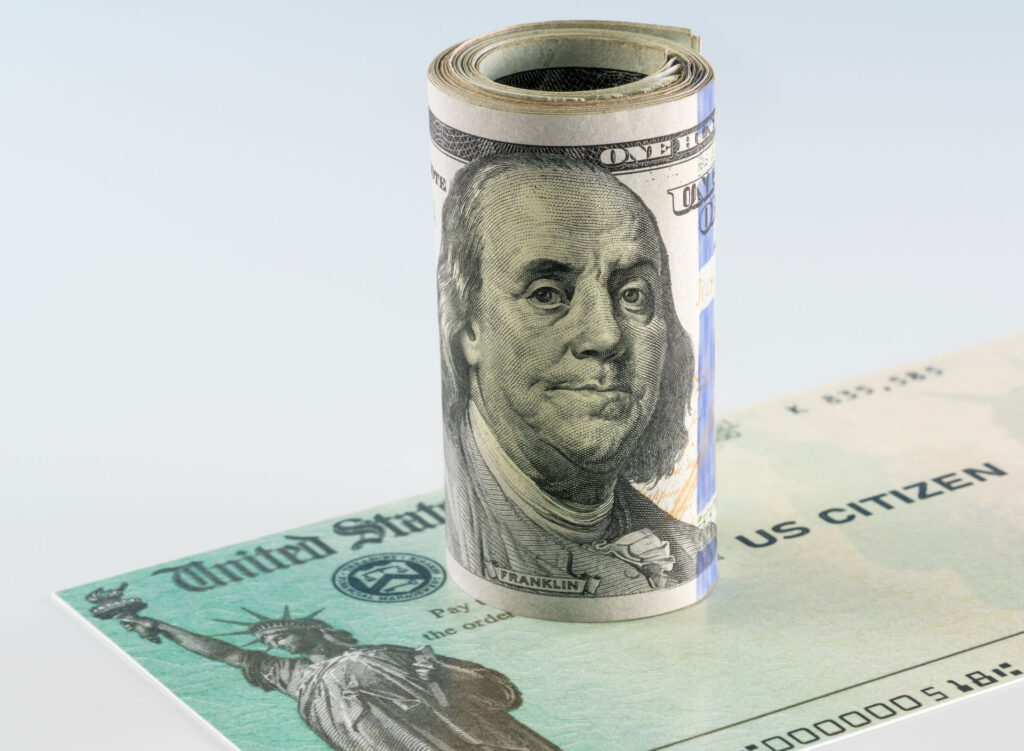The Coronavirus Aid, Relief, and Economic Security (CARES) Act was put in place this past March to help relieve some of the economic struggles caused by the COVID-19 pandemic. Aside from providing a large portion of Americans with a stimulus payment, the CARES Act also provides additional economic relief to those filing for bankruptcy.
What Is the CARES Act?
The CARES Act has several primary aspects. As we previously mentioned, one of the most notable provisions of the CARES Act was the distribution of stimulus payments, also referred to as Economic Impact Payments.
Economic Impact Payments
The CARES Act provides for Economic Impact Payments to American households of up to $1,200 per adult for individuals whose income was less than $99,000 (or $198,000 for joint filers) and $500 per child under 17 years old – or up to $3,400 for a family of four.
Additionally, the IRS will use the information on the Form SSA-1099 and Form RRB-1099 to generate $1,200 Economic Impact Payments to Social Security recipients who did not file tax returns in 2018 or 2019. Recipients will receive these payments as a direct deposit or by paper check, just as they would normally receive their benefits.
–US Department of the Treasury
And more recently, another deal was reached to provide many Americans with an additional $600 stimulus check, and there are potentially more payments coming down the road.

Small Business Paycheck Protection Program
The Paycheck Protection Program established by the CARES Act, is implemented by the Small Business Administration with support from the Department of the Treasury. This program provides small businesses with funds to pay up to 8 weeks of payroll costs including benefits. Funds can also be used to pay interest on mortgages, rent, and utilities.
The Paycheck Protection Program prioritizes millions of Americans employed by small businesses by authorizing up to $659 billion toward job retention and certain other expenses.
Small businesses and eligible nonprofit organizations, Veterans organizations, and Tribal businesses described in the Small Business Act, as well as individuals who are self-employed or are independent contractors, are eligible if they also meet program size standards.
–US Department of the Treasury
Other noteworthy aspects of the CARES Act include employee retention credit, payroll tax deferral, and payroll support, all put in place with the goal of helping American businesses survive the harsh economic climate.

How Does the CARES Act Relate to Bankruptcy?
Individuals in Bankruptcy
In Chapter 13 bankruptcy, the court helps determine a payment plan that enables the individual to pay off his or her debts affordably over a period of time, usually three to five years. Because of the CARES Act, you may now be eligible to extend the timeline up to seven years. Also, any economic relief provided by stimulus payments are not considered income, so these payments will not have a negative impact on the amount you owe.
Small Businesses in Bankruptcy
The Small Business Reorganization Act (SBRA) initially only allowed businesses to file for Chapter 7 or Chapter 11 bankruptcy if they were in under $2,725,625 of debt. The CARES Act increased the amount to $7,500,000, enabling more business to successfully file for bankruptcy.
Trusted Bankruptcy Expertise During the Pandemic
At Todd Cushner & Associates, our bankruptcy litigation experts can help you take full advantage of the CARES Act so that you receive the debt relief you deserve. Contact us today to schedule a free consultation to begin the journey to a financial fresh start.

